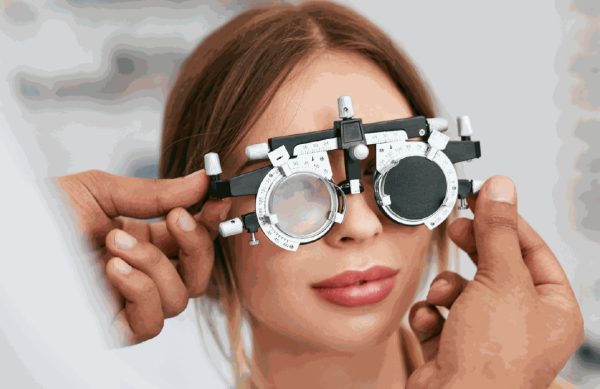
At a comprehensive eye exam, your optometrist checks your eyesight, corrects your vision (usually with glasses or contact lenses) and diagnoses and monitors any serious eye conditions, including diabetes, glaucoma and macular degeneration.
More than 1 million people around the world have some form of vision impairment that might have been prevented, treated or cured with proper care, the World Health Organization says.
The leading causes of preventable vision impairment are uncorrected refractive errors and cataracts (33%), while the leading causes of preventable blindness are untreated cataracts (51%) and glaucoma (8%).
The reason so many eye issues go untreated is many people around the world have limited (or no) access to eye care. If you have eye doctors where you live you should get your vision checked.
The International Council of Ophthalmology says comprehensive eye exams should be scheduled at least every two years, more often if you are at higher risk for eye health issues.
As you age, your eye doctor likely will want to see you more often as vision issues (presbyopia, cataracts, glaucoma and macular degeneration, for example) become more common.
Around age 40, age-related farsightedness (presbyopia) begins to affect everyone, even if you’ve always had excellent vision. Signs of presbyopia include difficulty reading text messages, restaurant menus and recipe instructions.
Comprehensive eye exams are performed by optometrists and ophthalmologists and typically take from 30-45 minutes. This routine exam includes an eye exam to ensure your vision is clear at all distances and a conversation about your eye health and any issues you may be having.
More specifically, your optometrist will likely:
Other vision issues your optometrist will be checking and recommending treatment for include dry eyes, digital eye strain and sun damage.
Bottom line: You see your medical doctor annually for a physical or checkup and you see your dentist once a year (or more if you have regular cleanings). Your eyes — and your children’s eyes — need the same regular care so vision issues can be detected and corrected.
Something to think about… contact us to book your eye exam today!
Source: Essilorsa
Social Chat is free, download and try it now here!